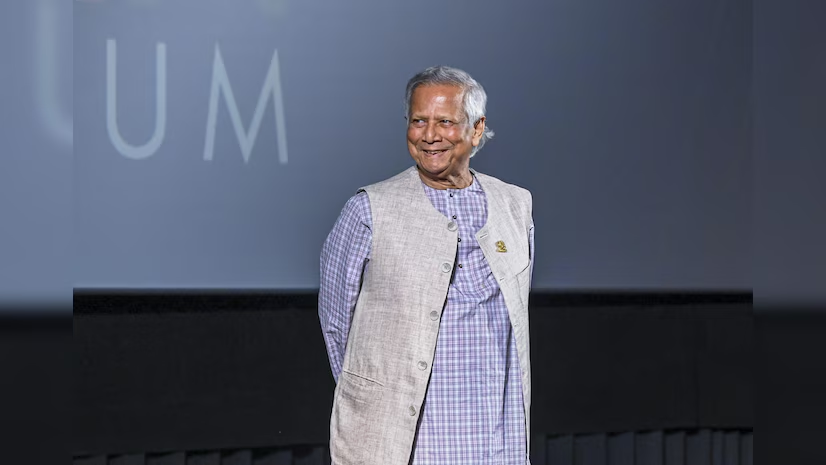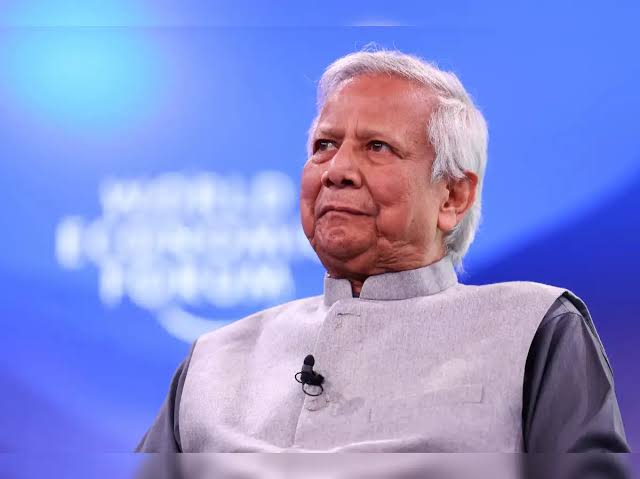
The political atmosphere in Bangladesh is simmering with tension as reports emerge that the Bangladesh Army Chief is considering all possible strategies to curtail the influence of Muhammad Yunus, the Nobel Laureate and founder of Grameen Bank. This revelation has sent shockwaves across the nation, stirring debates on civil-military relations, democracy, and the future of socio-economic reform in one of South Asia’s fastest-growing countries.
Muhammad Yunus is a name synonymous with innovation in social entrepreneurship. His pioneering concept of microcredit has empowered millions of impoverished people, particularly women, giving them tools to escape the cycle of poverty. For decades, Yunus’ vision and tireless work have attracted global admiration. Yet, within Bangladesh, his standing has always been more complicated, entwined with political controversies and differing visions for the country’s governance.
An Era of Growing Military Influence
Bangladesh’s military, long a formidable institution in the country’s political fabric, appears to be stepping up its involvement in matters traditionally managed by civilian authorities. The army chief’s reported intent to reduce Yunus’ power is seen by many analysts as part of a larger pattern where military leadership is asserting more direct control over political and socio-economic affairs.
This resurgence of military influence comes after decades of delicate balance between the armed forces and elected governments. Historically, Bangladesh has witnessed periods where the military directly ruled, interspersed with fragile democratic experiments. The current context shows the military acting from a position of strength, wielding considerable influence without officially taking over civilian institutions.
While the army’s stated role is safeguarding national security and stability, its expanding footprint into civilian governance raises critical questions about democratic norms and institutional boundaries.
Muhammad Yunus: A Controversial Icon of Reform
Muhammad Yunus’ journey is emblematic of Bangladesh’s complex socio-political narrative. His invention of microfinance in the 1970s and founding of Grameen Bank transformed global poverty alleviation models. However, his relationship with the Bangladeshi political establishment has been turbulent.
Yunus’ independent stance and critical voice against corruption and mismanagement have often put him at odds with powerful political actors. His efforts to push progressive economic and social reforms have invited suspicion from conservative factions within both government and military circles.
The latest reports of the army chief seeking to diminish Yunus’ influence underscore the fragile position he occupies. Despite his international acclaim, Yunus remains vulnerable to domestic political currents where traditional power holders feel threatened by his vision and reach.
The Military’s Motivations: Stability or Control?
Why would the Bangladesh Army Chief seek to remove or marginalize a figure like Muhammad Yunus, who primarily works in social development? Understanding this requires a close look at the military’s perceived role in shaping national stability.
From the military’s perspective, figures like Yunus represent a challenge to the established order. His international connections, vocal advocacy for transparency, and perceived political ambitions may be seen as destabilizing factors in a country where unity and centralized control are prioritized.
The military’s concerns may also stem from fears that Yunus’ influence could embolden opposition forces or civil society movements, potentially undermining their preferred political status quo. In authoritarian or semi-authoritarian contexts, even non-political actors with significant social influence are viewed through a security lens.
The Strategic Implications of the Army’s Moves
The army chief’s exploration of “all options” to curb Yunus’ influence is believed to encompass a range of measures — from administrative restrictions, legal challenges, to influencing political allies. These maneuvers are not isolated but part of a broader strategy to consolidate military oversight over key sectors.
Such moves are significant because they reflect an ongoing shift in Bangladesh’s governance style — one that blurs the lines between military authority and civilian administration. This shift is a double-edged sword: while it can bring efficiency and order in the short term, it risks undermining democratic accountability and citizen participation.
International Reactions and Diplomatic Dimensions
The international community holds Muhammad Yunus in high regard, not only for his pioneering work but also as a symbol of Bangladesh’s potential to be a beacon of innovation and human development. Governments, NGOs, and multilateral agencies have often cited Yunus’ microfinance models as templates for poverty reduction worldwide.
Reports of the military’s intentions to sideline Yunus have caused unease among these international stakeholders. Many fear that such actions may signal shrinking space for independent voices and civil society in Bangladesh. This could affect foreign aid, investment, and diplomatic relations, particularly with countries and organizations that emphasize democratic governance and human rights.
Public Sentiment: Divided Yet Passionate
Within Bangladesh, the news has elicited mixed reactions. Supporters of the army argue that strong leadership and centralized control are essential for maintaining law, order, and economic progress. They view Yunus as a figure who, despite his contributions, may harbor political motives that could fragment national unity.
Conversely, a large section of the public, especially the beneficiaries of Yunus’ microfinance programs, activists, and civil rights groups, see the army’s moves as a dangerous encroachment on democracy and social progress. For many, Yunus is more than a banker; he represents hope for marginalized communities and a commitment to grassroots empowerment.
This polarization highlights the deeper challenges facing Bangladesh: balancing security and reform, tradition and innovation, order and freedom.
A Deeper Look at Bangladesh’s Civil-Military Dynamics
Bangladesh’s history is marked by frequent intersections between military power and civilian governance. Since its independence in 1971, the country has experienced multiple coups, military rule, and transitions back to democracy. This legacy deeply informs the current tensions surrounding Muhammad Yunus.
The military has often justified its political interventions as necessary to protect national interests and prevent chaos. However, these actions have also curtailed democratic institutions and limited space for dissent. The delicate dance between the military’s role as a security institution and its political ambitions remains a defining feature of Bangladesh’s governance.
Muhammad Yunus’ position as a social entrepreneur with political implications is thus inherently precarious. His global prominence and reformist stance challenge entrenched power structures that the military helps sustain.
Historical Precedents and Comparisons
Looking at similar cases in South Asia provides perspective on the unfolding scenario. Countries like Pakistan and Myanmar have long experienced military dominance over civilian politics, often sidelining reformists and opposition figures under the guise of national security.
Bangladesh, while having a stronger democratic tradition in recent decades, is showing signs of a similar pattern where military influence extends beyond defense into economic and political spheres. This trend risks eroding democratic gains and could lead to instability if public grievances grow unchecked.
The Role of Media and Information Control
In a country with vibrant media but increasing restrictions, the role of information dissemination is crucial. The government and military influence key media outlets, shaping narratives favorable to their positions. Independent journalists and opposition voices often face censorship, intimidation, or legal action.
The unfolding story about Muhammad Yunus and the army chief is being closely monitored, with various versions emerging. Ensuring transparency and fair reporting is essential to maintaining public trust and preventing misinformation from fueling tensions.
The Economic and Social Stakes
Muhammad Yunus’ initiatives have transformed lives by providing microloans that enable entrepreneurship at the grassroots level. This economic empowerment has ripple effects, improving health, education, and gender equality.
Limiting Yunus’ influence risks disrupting these gains. The army’s focus on stability, while understandable, must be balanced against the need for continued social development and innovation.
Looking Forward: Potential Outcomes and Challenges
The path ahead for Bangladesh is fraught with uncertainties. If the army succeeds in diminishing Yunus’ role, it could signal a broader crackdown on reformist figures and civil society actors. This would likely provoke internal dissent and attract international criticism.
Alternatively, dialogue and compromise could preserve the social initiatives Yunus champions while addressing the military’s concerns about stability. Such a balanced approach would require political maturity and willingness to accommodate diverse voices.
Conclusion: A Crucial Moment in Bangladesh’s Future
The unfolding tension between the Bangladesh Army Chief and Muhammad Yunus encapsulates the complex challenges facing Bangladesh today. The nation’s future hinges on how it navigates the interplay between military influence, democratic aspirations, and socio-economic progress.
Muhammad Yunus, as a global icon and local reformer, embodies hope and innovation. The military’s actions reflect concerns about control and security. Reconciling these forces in a manner that preserves democracy, empowers citizens, and maintains peace will define Bangladesh’s journey in the years to come.

